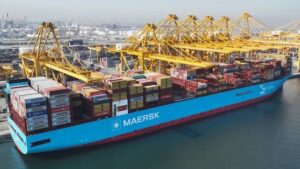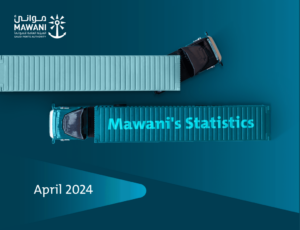Leaders in the global shipping industry have come together in an unprecedented move, issuing a joint declaration at COP28 to drive the decarbonisation of maritime transport.
In their joint declaration, shipping CEOs called for significant regulatory changes from the International Maritime Organization (IMO), highlighting the urgent need for a shift away from fossil-fuel-powered vessels.
Vincent Clerc, CEO of A.P. Moller – Maersk (Maersk), stressed the importance of regulatory conditions that facilitate maximal greenhouse gas (GHG) emission reductions per invested dollar, emphasizing the necessity of an efficient pricing mechanism to bridge the gap between fossil and green fuels.
Rodolphe Saadé, Chairman and CEO of the CMA CGM Group, emphasized the non-competitive nature of climate change, expressing the group’s commitment to ambitious targets set by the IMO trajectory. The CMA CGM Group has invested substantially in decarbonising its fleet and aims to reduce emissions significantly by 2023, marking a significant step towards achieving their Net Zero by 2050 ambition.
Rolf Habben Jansen, CEO of Hapag-Lloyd, reiterated the collective responsibility for sustainability within the maritime industry, emphasizing the pivotal role of a regulatory framework and clear targets in expediting the adoption of alternative fuels.
READ: Bearing AI, Hapag-Lloyd launch AI-powered vessel emissions tracker
Soren Toft, CEO of Mediterranean Shipping Company (MSC), underscored the industry’s innovation in decarbonisation technologies and the imperative for joint efforts towards achieving net-zero emissions by 2050. Toft emphasized the critical role of global support, particularly from energy providers, in realising these ambitious objectives.
Their joint statement outlines four key regulatory pillars:
- End Date for Fossil Fuel-Only Vessels: Advocating for a cutoff date for vessels reliant on fossil fuels, coupled with a clear timeline for GHG Intensity Standards, instilling confidence in new ship and fuel infrastructure investments.
- GHG Pricing Mechanism: Proposing an efficient pricing mechanism to make green fuels competitive during the transition, distributing premiums across all fossil fuels used and offering regulatory incentives for deeper emissions cuts.
- Vessel Pooling for GHG Compliance: Suggesting a pooled approach for compliance, where the collective performance of vessels influences regulatory adherence, directing investments where they achieve the greatest GHG reduction.
- Well-to-Wake GHG Basis: Calling for a comprehensive regulatory framework considering the entire emissions lifecycle, aligning investment decisions with climate objectives and reducing the risk of stranded assets.
Explore one of our latest Technical Paper from FourKites, where they delve into the crucial aspect of recognising and eliminating inefficiencies in your supply chain.









